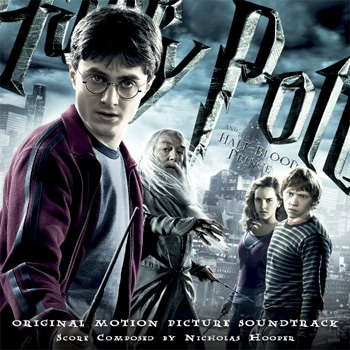
Soundtrack Review: Harry Potter and the Half-Blood Prince
Composer: Nicholas Hooper
Label: New Line Records
Release Date: July 14, 2009
Just as Harry and his friends have grown up in an increasingly darker world, the once-whimsical music box theme has matured into a haunting ghost of a familiar tune. The main theme we all immediately associate with Harry Potter is reprised (of course), but has taken on a well-crafted subtlety that sets the mood for the darkest movie in the series thus far. Epic orchestral pieces, sweeping pastoral music that practically paints the Hogwarts landscape in your mind, Celtic jigs, British choir boys, and heart-pounding battle compositions are all beautifully woven into Nicholas Hooper’s Harry Potter and the Half-Blood Prince soundtrack. If you haven’t read the book, I suggest you stop reading this review now; spoilers for the plot are included.
As expected, at the very opening we do indeed hear our favorite, whistleable Harry Potter theme. I was instantly pleased with the first track, “Opening,” for its reminiscent hints over a dark orchestral background; like hearing an old friend calling with sad and alarming news, it made me both nostalgic and worried. For anyone who has followed the story, you know that this sixth installation finds us in the midst of terrible times of war, and that loss and hardship are to come for our heroes.
All of the expected, typical elements of a Harry Potter score are indeed present. Choirs, music box melodies, and grand full orchestra pieces are audible in the first few tracks. The consistency with the first five scores is impressive, especially since this is only Hooper’s second time at the musical reigns. “The Story Begins” is quite beautiful, with its thin haunting strings that fill out to end on happier piano notes. “Ginny,” the next track, gives the audience a true recall with the old theme in horns, and soft harp touches that further soften.
I’m not the first to point out the similarities between the Death Eaters war and Hitler’s World War II: massive battles across Europe, propaganda campaigns, clandestine resistance movements and the enemy of true evil with its desire to clean out bloodlines. The parallels are almost obvious. What I did find interesting, though, is the implementation of that era’s music in this score. “Wizard Wheezes” is a fun, bright, big band number that conjures images of a 1940s dance hall. “The Slug Party” is a jazzy track, with a soft high hats and a walking bass line that practically dances. I love the playfulness of the happier pieces, and appreciate the tie-in to past war-era music.
The actual sound itself melds to the plot so closely, I almost feel like I’ve seen the movie already. Considering the length and detail specific to the series, once you know the plot it isn’t much of a stretch to imagine the familiar actors in new situations. “Farewell Aragog” is an immaculate violin mourning solo, fitting for the loss of Hagrid’s giant arachnid friend. Listening, I can see the Forbidden Forest in my mind. The same goes with “When Ginny Kissed Harry.” I can sense all of the build up and tension melting away during one of the most tender scenes in all of Harry’s history. The simple ballad is quietly stunning.
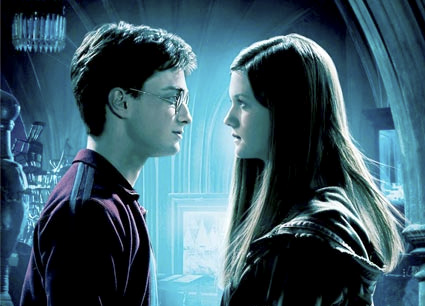
I was cringing throughout “The Drink of Despair,” silently wishing Dumbledore would somehow not imbibe the poison in this version. But of course, we know he does and the quest for Horcruxes must go on. The violins cry as the great wizard takes on the beginning of his end. “Inferi in The Firestorm” uses electronic ambient elements, perfect to aurally illustrate the zombie attackers, half dead and seemingly unreal. “The Killing of Dumbledore” is softer and sadder than a true battle score — fitting, as it was hardly a heroic effort that killed him. Emotions are varying in this climax and somehow all present in the one track: the devastating loss of the Headmaster, Draco’s fear and inability to do it himself, and the surprise and anger when we see Snape take the matter unto his own wand.
The dénouement of The Half Blood Prince is full of melancholy: “Dumbledore’s Farewell” is tragically beautiful and subtly recalls themes from past Harry Potter scores, manipulated into a minor key. I could see the white casket in my mind, and I was listening for Fawkes’s song, but it never comes. I’m glad this score doesn’t include an attempt to recreate the cries of the Phoenix within the music itself. I am eager to see how the full movie will interpret the heart-tugging mourning of Dumbledore’s fond pet though. In the book, the funeral goers all hear his cries off in the distance as the body of Dumbledore bursts into flames.
The finality of the score does end on a warmer, happier note. “Friends” is a solid, bittersweet piece. We know the group is splitting up now, and that things will forever be different in the heroes we feel we personally know. The overall mood isn’t depressing, though; there is an obvious love and I can imagine the last hugs and goodbyes. The closing track, “The Weasley Stomp,” is a fun, bold, Celtic jig: I was toe-tapping and smiling, looking around for someone to hand me a Butterbeer.
Hooper does a marvelous job with the most mature score to date, and I’m now more eager than ever to get into the theatre on July 15th. It’s impressive to include such consistency in the melodies without them feeling tired and played out. Perhaps that’s the benefit of changing hands throughout the series, to always keep it fresh. Regardless, the score is beautiful, scary, fun, and sad, and is so descriptive in terms of the plot merely listening was like reading a synopsis of the book. Overall, and not surprisingly, I think this score is excellent, and on caliber with the magnitude that the Harry Potter series demands.
Track Listing
1. “Opening” (2:54)
2. “In Noctem” (2:00)
3. “The Story Begins” (2:05)
4. “Ginny” (1:30)
5. “Snape & the Unbreakable Vow” (2:50)
6. “Wizard Wheezes” (1:42)
7. “Dumbledore’s Speech” (1:31)
8. “Living Death” (1:55)
9. “Into the Pensieve” (1:45)
10. “The Book” (1:44)
11. “Ron’s Victory” (1:44)
12. “Harry & Hermione” (2:52)
13. “School!” (1:05)
14. “Malfoy’s Mission” (2:53)
15. “The Slug Party” (2:11)
16. “Into the Rushes” (2:33)
17. “Farewell Aragog” (2:08)
18. “Dumbledore’s Foreboding” (1:18)
19. “Of Love & War” (1:17)
20. “When Ginny Kissed Harry” (2:38)
21. “Slughorn’s Confession” (3:33)
22. “Journey to the Cave” (3:08)
23. “The Drink of Despair” (2:44)
24. “Inferi in the Firestorm” (1:53)
25. “The Killing of Dumbledore” (3:34)
26. “Dumbledore’s Farewell” (2:22)
27. “The Friends” (2:00)
28. “The Weasley Stomp” (2:51)


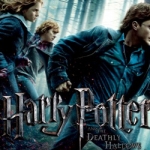
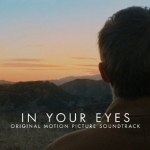
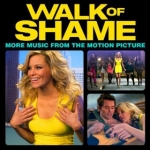
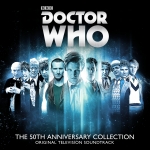
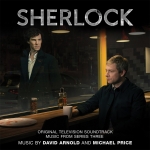
 Growing up, Rose Duggan had no idea she was a geek. She thought her childhood of space camp, anime, Tolkien, and sci-fi was totally normal. The blame should probably lean towards her parents: a couple of original Trekkies who own a small collectibles business.
Growing up, Rose Duggan had no idea she was a geek. She thought her childhood of space camp, anime, Tolkien, and sci-fi was totally normal. The blame should probably lean towards her parents: a couple of original Trekkies who own a small collectibles business.
The Score is quite unimpressive with a lot boring tracks and always similar chord progressions. The biggest problems are the lack of any structure and themes in it.
There is no build up of themes, there are very few developments of motives and no overarching plan from beginning to end.
I don’t understand why Hooper wasn’t forced to relay more on the original Williams material if he isn’t capable himself to write decent themes . I don’t believe the producers dont care. If it’s true that this score was close to rejection, the chances are very high that they will choose another composer for DH.
Hooper at least managed to maintain the magical feeling while Doyle completely destroyed his movie through the lack of magical music. The sad thing is that all those Potter fanboys always cheer on the latest score even if bad like GOF or mediocre like this one. Warner could get the impression if they accept everything why bother with another composer.
Hooper is also very stubborn and strange in his behaviour with ignoring most of Williams themes. He acts like a child and obmits almost all original music. He didn’t even play Hedwigs theme at full once!!!
If i would have been a mediocre television composer i would try to cover my music with at least a bit great Williams music to leave a better impression afterwards. He probably doesnt get that. If he would have done that and used Fawkes theme, A window to the past and Double Trouble sporadically there wouldnt be a lot discussions about him now.
At last i want to mention the things i liked about this score:
Aragogs Farewell is nice, Ginny (because of Hedwigs A theme and the nice motif concluding it) is good and “In Noctem” is magical music
The best thing out of this soundtrack would be the recurring Williams Quidditch motif in Ron’s Victory. That’s a very short but great track…
Beautiful, emotional, subtle score. Congratulations on your Grammy nomination Mr Hooper, it is well deserved and I hope you win.